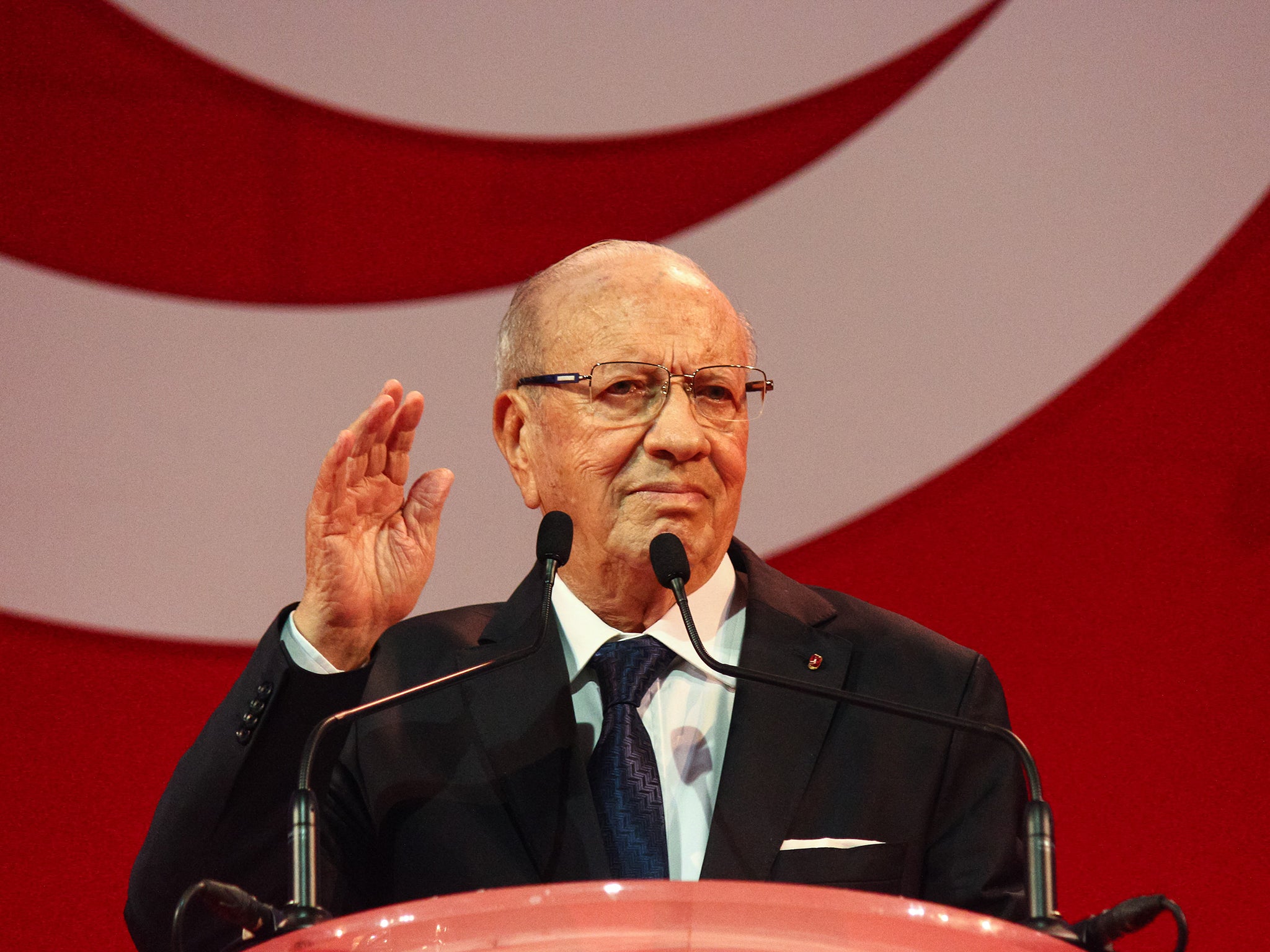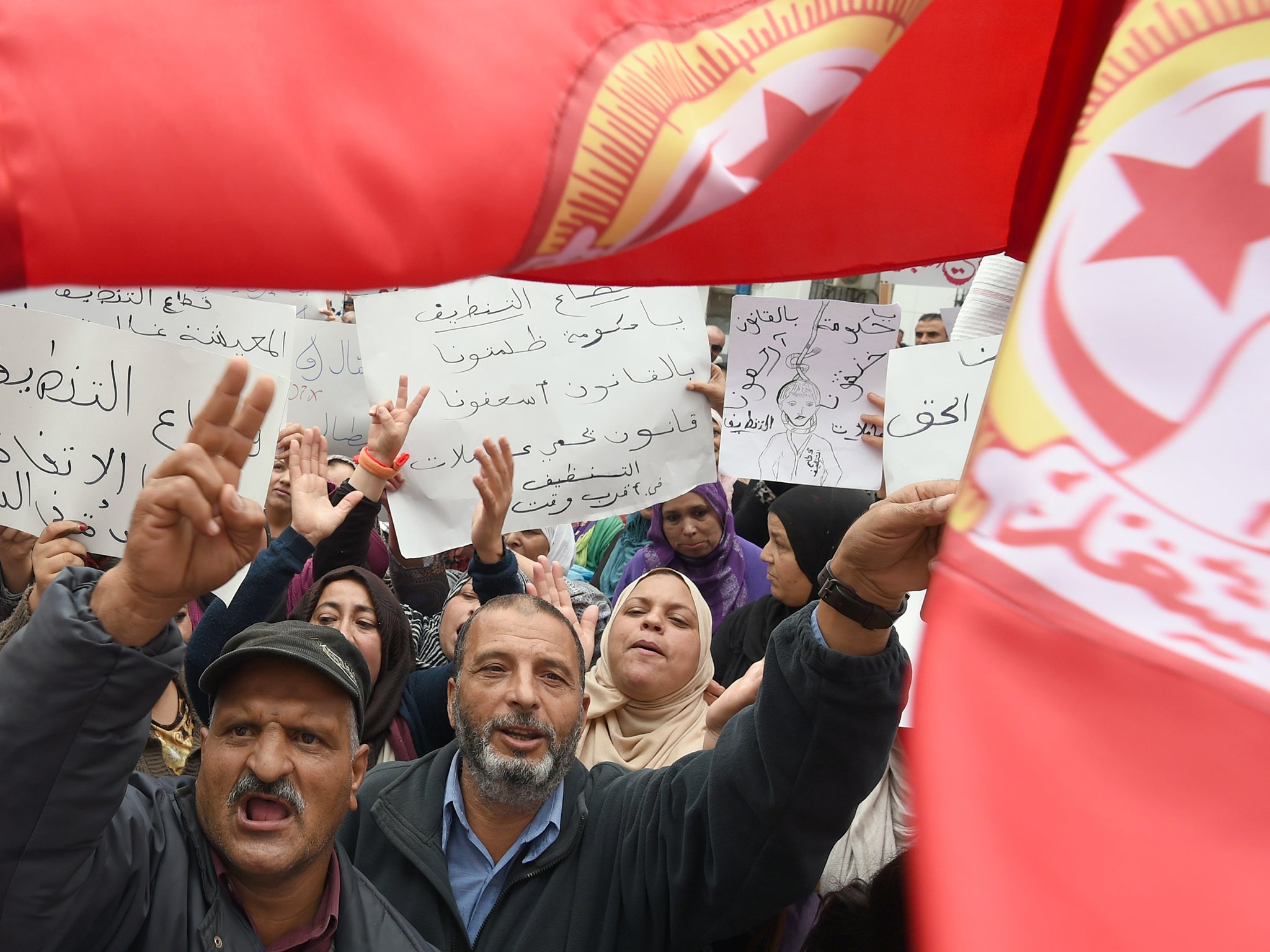Tunisia’s ruling party implodes as President Beji Caid Essebsi stands accused of trying to build a dynasty
Backlash against power grab by president's son

Your support helps us to tell the story
From reproductive rights to climate change to Big Tech, The Independent is on the ground when the story is developing. Whether it's investigating the financials of Elon Musk's pro-Trump PAC or producing our latest documentary, 'The A Word', which shines a light on the American women fighting for reproductive rights, we know how important it is to parse out the facts from the messaging.
At such a critical moment in US history, we need reporters on the ground. Your donation allows us to keep sending journalists to speak to both sides of the story.
The Independent is trusted by Americans across the entire political spectrum. And unlike many other quality news outlets, we choose not to lock Americans out of our reporting and analysis with paywalls. We believe quality journalism should be available to everyone, paid for by those who can afford it.
Your support makes all the difference.A power struggle within Tunisia’s secularist ruling party is threatening to destabilise the government of the country hailed as the greatest success story of the “Arab spring”.
Violence broke out between rival Nidaa Tounes factions at the weekend when young men armed with wooden clubs prevented dissident party members from entering a planned leadership meeting, smashing windows of the five-star hotel in the tourist resort of Hammamat where the party gathering was due to be held.
Dissident MPs, who believe Tunisia’s 88-year-old President Beji Caid Essebsi is attempting to install a family dynasty to rule the country, moved instead to another hotel and accused his son and another senior presidential adviser of encouraging the violence. The growing dispute within the party is pitting conservative supporters of the President and his son, Hafedh, against more liberal Nidaa MPs, at least 35 of whom are close to forming a breakaway party of their own, insiders say.
Nidaa won 85 out of 217 seats in parliamentary elections last October after campaigning on a strongly anti-Islamist platform and defeating the moderate Islamist Ennahda party – which itself came to power after the ousting of former dictator Ben Ali during the first revolution of the Arab spring. It formed a loose governing coalition with Ennahda and two smaller parties. The loss of 35 Nidaa MPs would make Ennahda – which has 69 MPs – once again Tunisia’s largest party.

Nidaa was formed by President Essebsi in 2012, bringing together a broad coalition of leftists, liberals and businessmen, many linked to the Ben Ali regime and all unified in opposition to the then Islamist-led ruling coalition. President Essebsi was elected president for a five-year term last year, but his advanced age has led to intense speculation over who might succeed him.
Beji Caid Essebsi is an old member of the totalitarian regime. He’s an old fox
There is frustration within party ranks that it has become so centralised around one individual, and that President Essebsi’s son, installed as the party’s vice-president, has pushed for greater prominence for former members of the Ben Ali regime. Critics also say Hafedh Caid Essebsi is too close to some of the country’s wealthiest oligarchs and has now begun courting the support of Ennahda party members.
The rival camp is led by the party’s secretary-general, Mohsen Marzouk, who is widely believed also have his eye on the ultimate prize of the presidency.
Lazhar Akremi, a prominent founding Nidaa member now in the dissident faction told The Independent that President Essebsi was putting his family’s interests before that of the party, and was acting undemocratically. “Beji Caid Essebsi is an old member of the totalitarian regime,” he said. “He’s an old fox.”
The Essebsi family has links with Tunisia’s aristocracy and the monarchy that was deposed almost 60 years ago, and dissident party members believe the younger Mr Essebsi, who only became very active within the party over the past year, is acting out of a presumption of hereditary entitlement. Many see echoes of Ben Ali, who allowed his wife’s family to exploit their ties to the presidency, eventually monopolising much of the economy.
“There’s a monarchical culture... which we can’t accept,” Mr Akremi said.
Mr Akremi resigned as minister of relations between the government and parliament early last month, citing corruption within the party. He told The Independent that at least 35 Nidaa MPs were breaking off in order to form a new party.
Monica Marks, a Visiting Fellow at the European Council on Foreign Relations, confirmed that Ennahda has been quietly building alliances with the Essebsi faction inside Nidaa because it is less vehemently anti-Islamist. Mr Marzouk is a frequent visitor to the strongly anti-Islamist UAE, while the younger Mr Essebsi had an unannounced meeting with Turkish President Recep Tayyip Erdogan, a close ally of Ennahda, in August.
Join our commenting forum
Join thought-provoking conversations, follow other Independent readers and see their replies
Comments